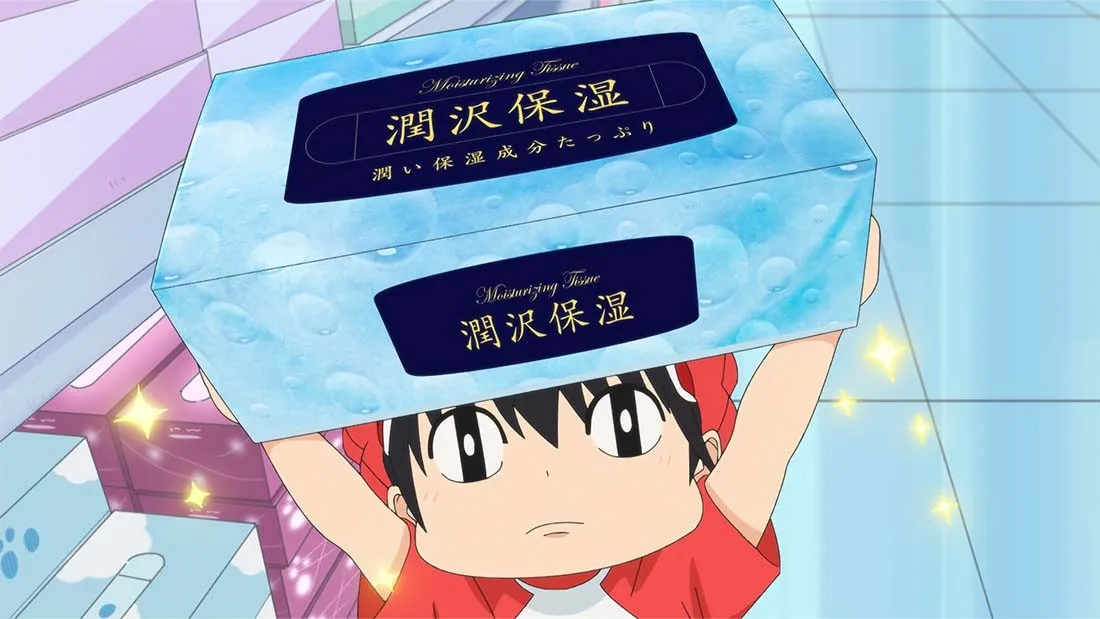I watch anime but I can't seem to write a proper review. My attempts often go off the plot, exploring my own emotional responses and the deeper meanings I glean, which isn't what a standard review typically offers.
Kotaro's silent struggle.
He's that little boy, Kotaro, who moves into an apartment building all on his own and unexpectedly befriends the broke manga artist living next door.
That anime Kotaro Lives Alone, tagged as lighthearted slice of life feels like a complete mislabel to me. It's a tear-jerker, plain and simple.
In fact, I shouldn't even say it was - it is a tear-jerker. I'm still watching it on repeat, and each time, it takes me on an emotional roller coaster, swinging from laughter to outright crying, sometimes within a single episode.
I definitely need plenty of tissues for those emotional moments, though, mercifully, not to eat.
Kotaro's story immediately brought to mind a real-life account I read from Sora News.
Before her big breaks in the mid-2000s, a famous anime voice actress, Hirano, was struggling to scrape together enough paying gigs just to cover her grocery bills.
While being interviewed on Kansai TV's Kaiketsu Emi Channel variety show back in 2014, she candidly looked back on her pre-stardom life:
There was a time when I really had no money, so I'd put soy sauce on tissues and eat them.
While free packets are often handed out on the street in Japan for advertising, Hirano found those didn't taste good.
I didn't fully grasp the true meaning behind Kotaro's actions from the start. Maybe it's just the way my mind processes things, but it took multiple viewings, each revealing new layers of heartbreaking revelation for me.
Of course, we must suspend disbelief: this story is about a four-year-old living alone in an apartment after all.
While he never directly admits to being an abused and neglected child, the subtle, quirky things he does reveal his heartbreaking backstory.
And I admit, I too quickly judged this kid, thinking,
This kid sure has expensive taste for a four-year-old!
He consistently bought and even generously gifted expensive boxed tissues to his neighbors, while I, on the other hand, always gravitate towards the cheapest option on the shelf.
The quality of those budget tissues is usually quite bad - they tear easily, and when I have a flu, the friction leaves my nose area rough and sore.
That was one privileged little boy.
But then, after the initial opening episodes, a shocking, heartbreaking truth slammed me in the face.
While most wouldn't bother, Kotaro would read the ingredients on tissue boxes, evaluating which brand was better. In his case, better tasting, as that was what he had to eat when hungry.
He'd inadvertently mentioned to his neighbor that certain ingredients, particularly glycerin in the more expensive, lotion-infused tissues, made them sweeter.
And why that odd gift of a box of tissues for his new neighbors? It was a direct consequence of his own past hunger. His mother had left him without food, forcing him to resort to eating tissues.
In a sense, he hopes that his neighbors would always have something to eat whenever hunger struck them. It was his kind of emergency food, sadly.
Looking back, I feel bad for laughing when I first watched it.
Now, I can never look at a box of tissues the same way again. What was once a simple, use and toss item has become a reminder of those unseen struggles.

(Photo by Susan Wilkinson on Unsplash )
I'm grateful that the creator chose such an unconventional storytelling method, allowing outsiders to take a peek into the meaning behind every seemingly odd, or even frustrating, habit - revealing them as crucial coping mechanisms for these victims.
These insights really hit home for me.
As a victim myself, having often been harshly criticized for similar traits, I recognize that these small - perhaps seemingly silly or even annoying - actions are simply our coping mechanisms for survival.
These are really personal, never meant to offend anyone.
My sincere hope is that those who've always felt offended might watch this, perhaps having more empathy and understanding that some people's actions stem from sad/dark places, and in a way, grant those silent victims a little space to breathe
For when someone finds a way to cope, it means they are trying their best to find ways to live on. Let's not make their life worse with unnecessary condemnation.
©Britt H.
Thank you for reading this.
